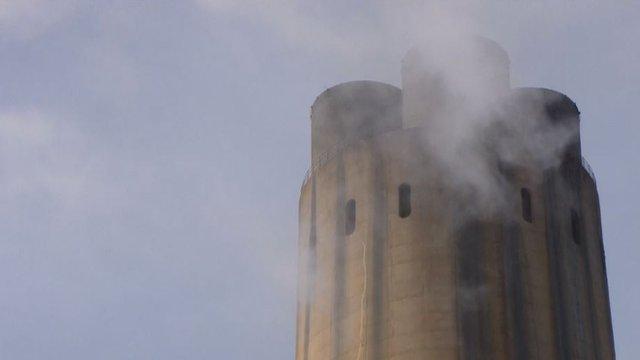Longannet switch-off ends coal-fired power production in Scotland
- Published
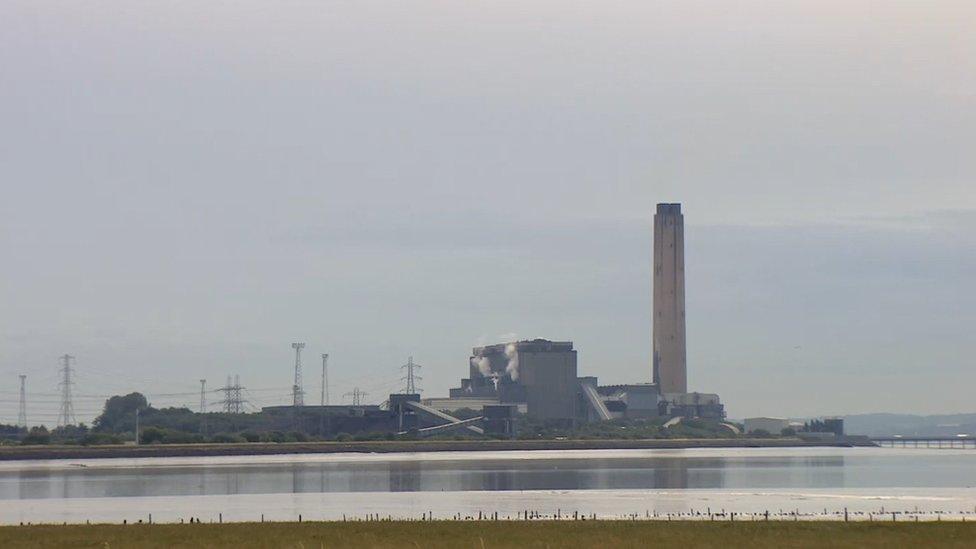
Longannet power station has been operating for 46 years
Longannet Power Station in Fife has switched off its four generating units for the last time, signalling the end of coal-fired electricity production in Scotland.
After 46 years of production it was switched off about noon.
Its owner, Scottish Power, said the high cost of connecting to the grid was to blame.
Friends of the Earth Scotland said the move showed the positive steps taken in the fight against climate change.
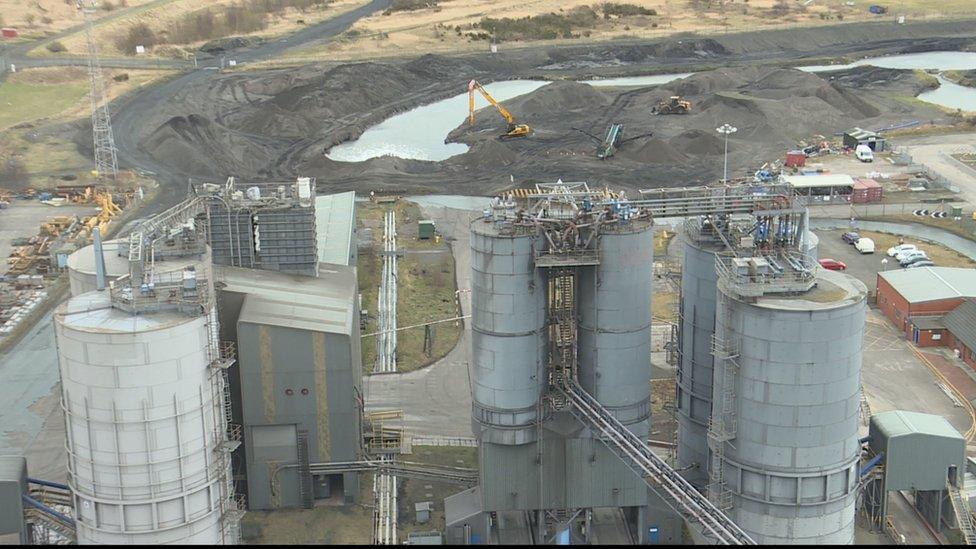
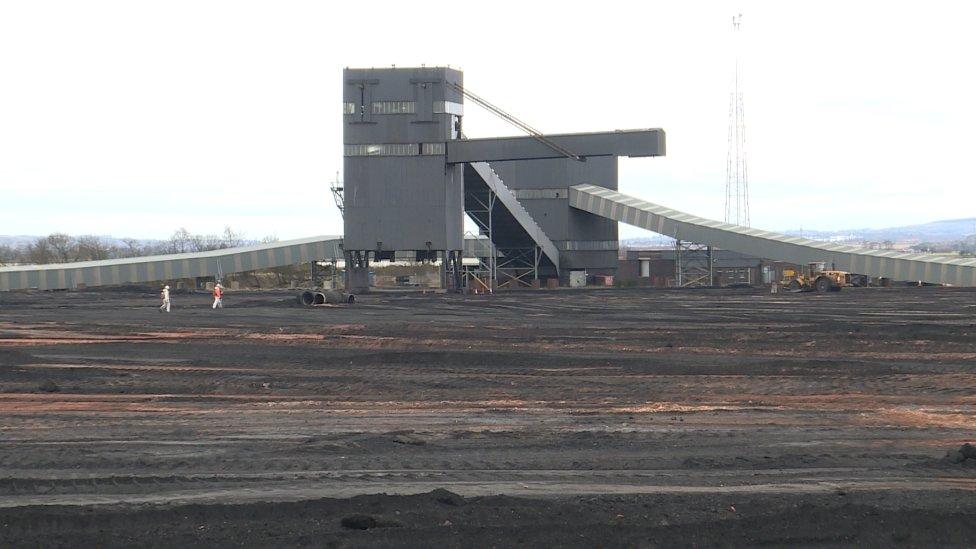
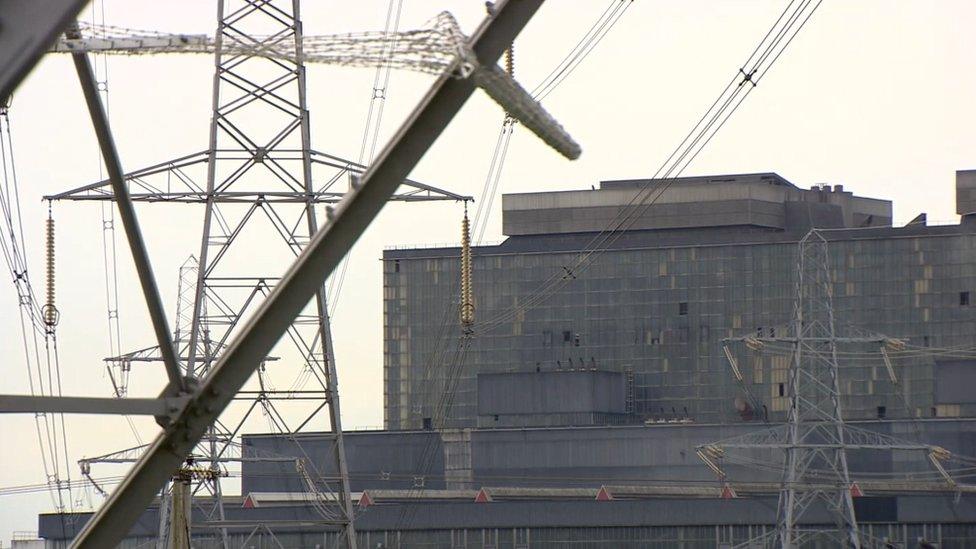
During its lifetime, more than 177 million tonnes of coal was used along with 2.7 million tonnes of heavy fuel oil and 2.4 million cubic metres of natural gas.
More than 60 billion cubic metres of cooling water from the Firth of Forth has also passed through the power station.
It was the largest power station in Europe when it went online in 1970, capable of producing 2,400MW of electricity for the national grid and powering over two million homes each year.
It was only meant to be operational for 25 years but even through its last winter Longannet remained a key energy provider, the operator said.

Alex Pollock (L) and his son Ronnie Pollock (R) said they were sorry the power station was going to close
Alex Pollock, who worked at the station for 29 years before retiring in 1998, said he felt "sorrow" at it closing down.
He said: "When I started in 1968 they were still building the place.
"It was exciting because we knew this was going to be the largest power station in Europe at the time when it was built. For me it was good to start and grow with the building.
"There will be a lot of sadness in the community because people, local shops, local businesses, contractors have made a good livelihood at Longannet.
"There's a lot of people just like ourselves who have had a good standard of living, a lot of families probably in exactly the same position."
Alex's son, Ronnie Pollock, said: "I'm going to leave a lot of good memories behind.
"It's going to be a devastating loss, it's been a huge chapter in my life.
"I've been here 21 years, started in 1995, and it's been a huge part of the family between myself, my dad and my brother - we've got over 74 years' service at Longannet power station, and a great loss to be leaving Team Longannet.
"They've been a great bunch of guys to work for and it's been a great place to work as well."
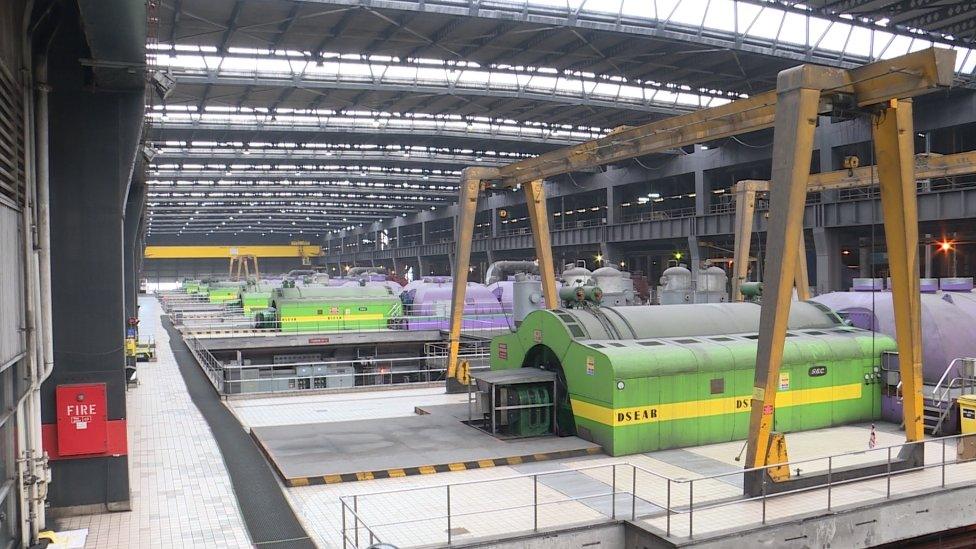

Hugh Finlay, the generation director at ScottishPower, said: "Coal has long been the dominant force in Scotland's electricity generation fleet but the closure of Longannet signals the end of an era.
"For the first time in more than a century no power produced in Scotland will come from burning coal.
"The highly-skilled team at Longannet have worked hard in difficult circumstances over the last six months to ensure that the station continued to operate at a high level over the winter.
"Originally designed to run for 25 years, the success of Longannet has been driven by substantial investment over the years and by the dedication of the men and women overseeing the station's operations."
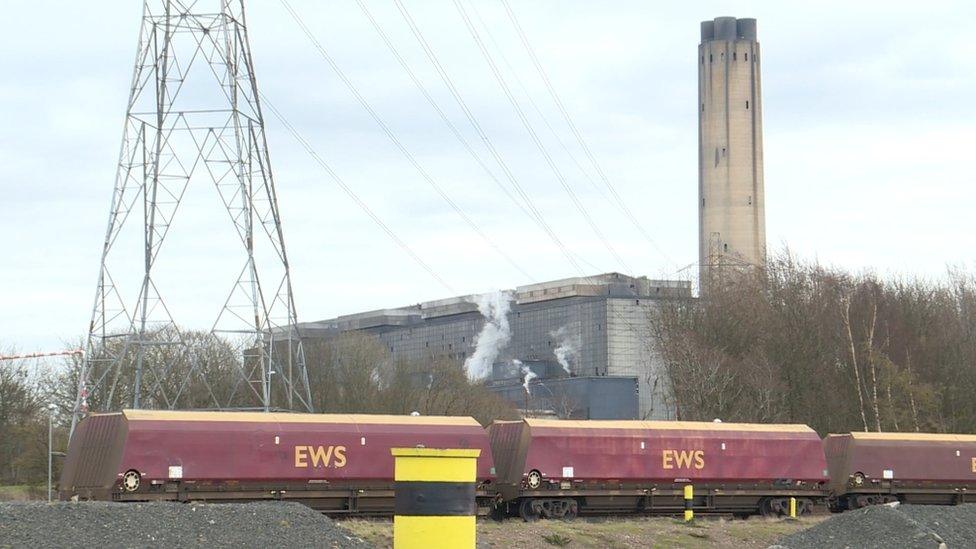
The 236 staff will leave the plant for the final time on Thursday, with many moving to work elsewhere for ScottishPower or taking retirement.
The company said it is still working to help around 5% of workers find alternative employment.
Friends of the Earth Scotland said it would be an emotional day for workers at the site but believed the closure was necessary.
Director Dr Richard Dixon said: "For the first time in at least 115 years there will be no coal being burned to make electricity anywhere in Scotland.
"For a country which virtually invented the industrial revolution, this is a hugely significant step, marking the end of coal and the beginning of the end for fossil fuels in Scotland."
WWF Scotland director Lang Banks said: "The closure of Longannet marks an historic and inevitable step in our energy transition as Scotland becomes one of the first nations to end its use of coal for power.
"While the power station has served the nation for many years, the world is moving forward to cleaner, cheaper forms of renewable energy generation."
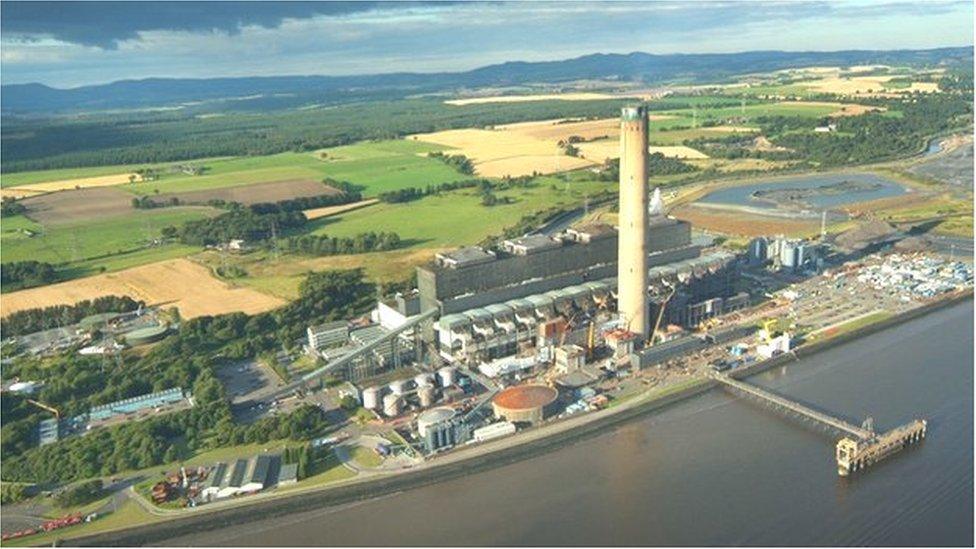

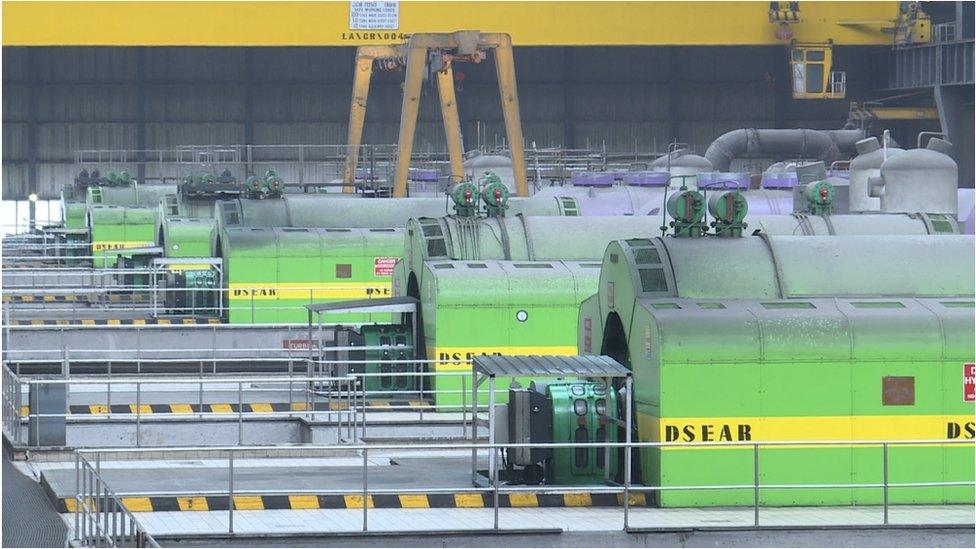
- Published24 March 2016
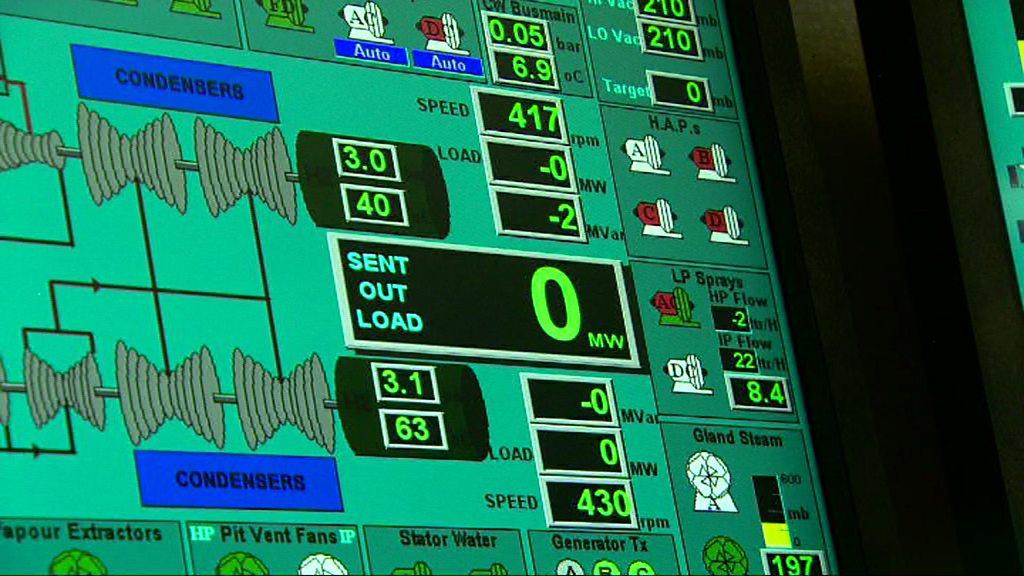
- Published18 August 2015
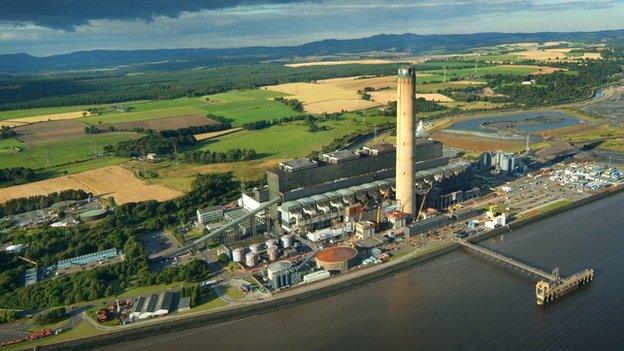
- Published18 August 2015
